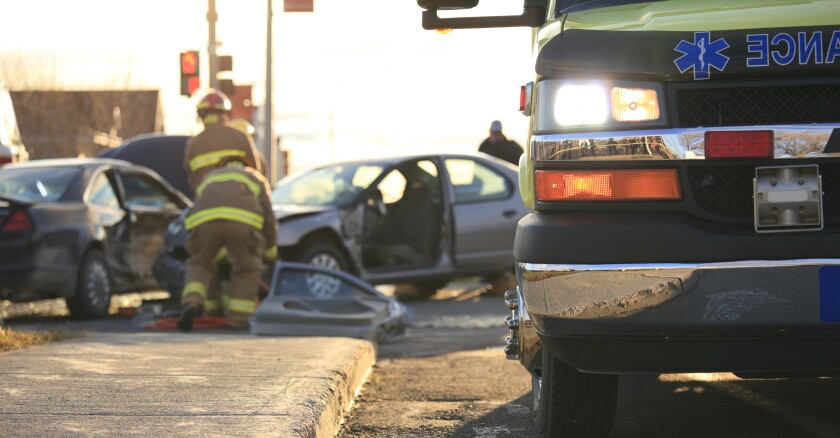The Iowa Department of Transportation is working with Autobase in the Iowa City area testing drone use to help monitor and safely and efficiently redirect traffic around wrecks, temporary road closures and construction to get traffic moving again faster.
The project was inspired by Andy Lewis, traffic operations bureau director for the Iowa DOT, after learning about drones being used in other states to quickly clear traffic.
This pilot program got underway in early spring.
Iowa DOT's Traffic Management Center in Ankeny uses live video feeds from 500 stationary cameras to assess highway incidents and then relay information to workers at the scene to get roads cleared as quickly as possible, said Ashley Hochberger, a program manager in the Iowa DOT's traffic operations bureau.
With a drone, the DOT can quickly get a camera to areas where the department does not have stationary cameras, in addition to providing a bird's-eye view to monitor and manage traffic while emergency responders and towing companies work to clear crash scenes, Hochberger said.
Similarly, drones can help the DOT monitor roadway construction activities to ensure a smooth flow of traffic.
The drone being tested in Iowa City has the capability to stream live video as well as take high-resolution still photographs.
"Using the drone provides a whole new vantage point that we've not had before," Hochberger said. "This just gives us another set of eyes and a situational awareness to know what's going on so that way we can ... leverage any resources we have ... that we can deploy in conjunction with law enforcement."
The DOT and Autobase have worked out a process to add a drone to the "Highway Helper" tool kit.
The "Highway Helper" program is a free service that assists stranded motorists with flat tires, dead batteries or empty fuel tanks on metro highways. Highway Helper drivers also serve as traffic mangers after a crash, setting up barricades and blocking lanes. Their trucks also feature large signs to warn drivers to avoid an accident scene.
Highway Helper trucks patrol the freeway and interstate systems and are dispatched to other Iowa DOT roadways in Des Moines, Council Bluffs, Cedar Rapids/ Iowa City and Quad Cities metro areas. The Iowa DOT Traffic Management Center uses traffic cameras to monitor roadways, and dispatches Highway Helper trucks to needed locations.
Travis Schooley, program manager at Autobase — which contracts with the DOT to provide Highway Helper services — said a drone was deployed to monitor recent river flooding in Davenport and assess what roads needed to be closed.
The drone also has been used in the Iowa City area to view work zones from the sky to ensure they are set up in a manner that will make sure all elements are positioned correctly to make the area as safe as possible.
"Flying the drone over the traffic that's backed up" gives the DOT and Highway Helpers a better, more complete view to devise "the easiest route to kick them off that's a good route where semis can go through," Schooley said, "and stop the queue and get traffic moving a little better until we get the incident cleaned up."
Hochberger said drones can also help enhance traffic incident management training and after-action reviews by taking aerial views of how vehicles were positioned. That information can be used to improve safety and better protect crash victims, first responders and the traveling public.
The drones also can work in concert with the DOT's Towing Recovery and Incentive Program, or TRIP, which is aimed at clearing large crashes quickly to prevent traffic from backing up. TRIP recently was expanded to the Des Moines area after proving successful around Iowa City.
After getting called to a crash, a towing company that's part of TRIP can receive a $2,500 incentive payment from the Iowa DOT if the scene is cleared within a certain time frame.
"Nobody likes to be stuck in traffic on the interstate, right?" Hochberger said. "And at the DOT we are very big on innovative technology and making data-driven decisions."
The drone program is part of that effort to innovate, Hochberger said.
"Luckily, we already have a great partner with Autobase, so it was fairly seamless to get this up and going and continue the partnership with them."
©2023 The Gazette, Distributed by Tribune Content Agency, LLC.














